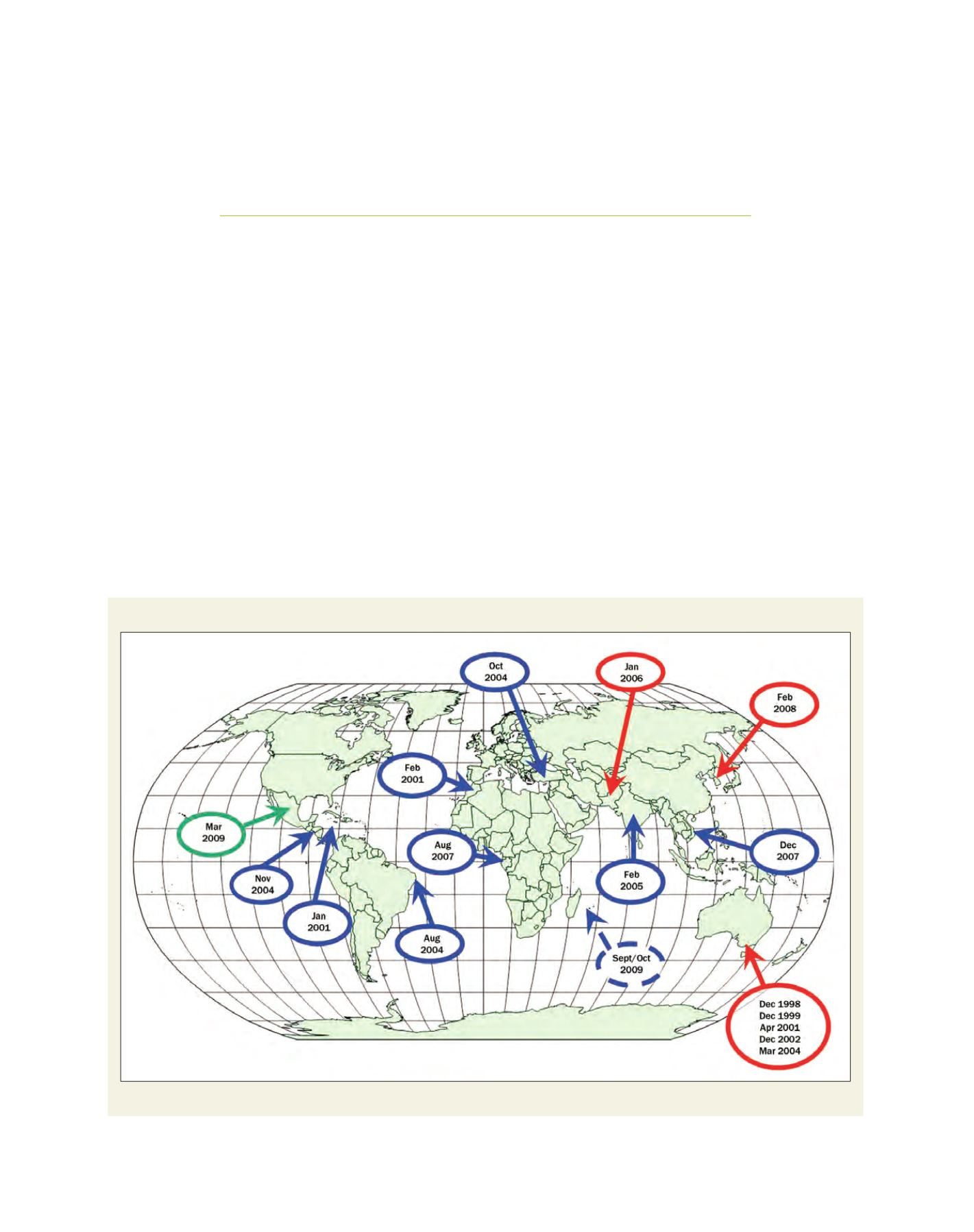

[
] 184
Simple indices for the monitoring
of weather and climate extremes
Xuebin Zhang, Research Scientist and Francis W. Zwiers, Director, Climate Research Division, Environment Canada
I
n its fourth assessment the Intergovernmental Panel on
Climate Change concluded that: “warming of the climate
system is unequivocal” and that: “most of the observed
increase in global average temperature since the mid-20th
century is very likely human-induced.” Evidence also suggests
that widespread changes in the temperature and other aspects
of the climate system are now affecting many physical and
biological systems on all continents. It is thus increasingly
evident that action is required to limit the extent and impacts
of human-induced climate change by reducing greenhouse gas
emissions. However, even very aggressive mitigation actions
will not entirely stop climate change in the coming decades,
thus adaptation to a changing climate will be necessary.
1
Informed decisions for adaptation require reliable infor-
mation and knowledge about both past and future
climate conditions. Unfortunately, climate science is
not yet able to provide all of the information needed for
adaptation.
2
There is, however, considerable certainty
that human activities have changed the global climate,
and that climate change will continue. On the other
hand, impacts resulting from climate typically occur
on regional or local scales and very often result from
extremes in weather and climate. It remains necessary
to quantify the role of human influence on the climate
system on smaller regional and local scales and on aspects
of the climate system not directly related to warming.
O
bserving
, P
redicting
and
P
rOjecting
c
limate
c
OnditiOns
Climate workshops
The locations and dates of Asia-Pacific Network for Global Change Research (red), ETCCDI (blue), and ETCCDI assisted (green) workshops between 1998 and 2009
Source: Based on Table 1 of Peterson and Manton (2008; updated)
















